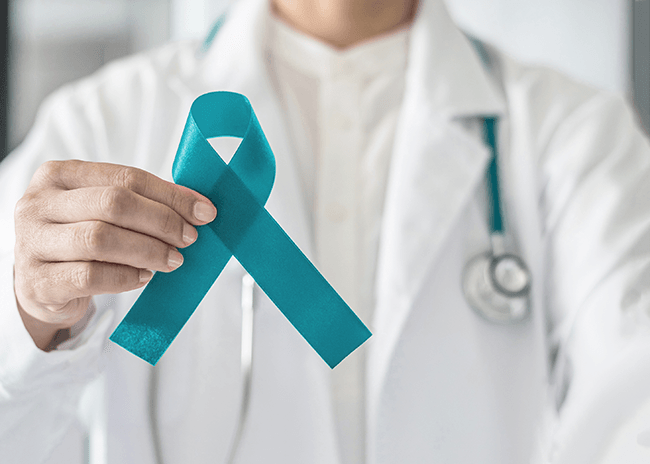January is recognized as Cervical Health Awareness Month and we encourage every woman to talk with their health care provider about their cervical health. Each year in the U.S. approximately 13,000 women are diagnosed with cervical cancer, and more than 4,000 die because of the disease. Cervical cancer can be prevented with regular screening and early detection.
These regular screenings involve Pap and HPV tests along with cervical cancer vaccines. A Pap test can detect cervical changes caused by HPV, it can also detect some infections of the cervix and vagina. Human papillomavirus or HPV is a family of viruses that are spread through skin contact and there are different types. Some are spread through sexual contact, some cause genital warts and some types cause cell changes (dysplasia) in the cervix that can lead to cancer.
An HPV infection leads to the highest risk for cervical cancer, but your provider can test for HPV which is often done along with a Pap test. That’s why it’s very important to have regular Pap tests. Abnormal cells in the cervix can be found and treated before they become cancerous. Pap tests are recommended for women age 21 and a combination of Pap and HPV tests are recommended for women over 30. Your provider will advise you on how often you should be screened, and which tests they want to conduct.
HPV vaccines can help prevent an HPV infection – from both high-risk types that can lead to cervical cancer and low-risk types that cause genital warts. The CDC recommends all children get the two-dose HPV vaccine at age 11 or 12 because the vaccine provides a stronger immune response when it’s received during the preteen years. A three-dose series of the vaccine is also available for all adults through age 45.
If you need a women’s healthcare provider, MHP OBGYN provides reliable and compassionate care combined with experienced physicians and state-of-the-art equipment. Call 317-398-0193 to schedule an appointment with us.
*This content is a general guide and not intended to be a substitute for medical advice, diagnosis, or treatment. Always seek and follow the advice of your physician or other qualified health provider. Reach out to your provider with any questions you may have regarding a specific medical condition.
